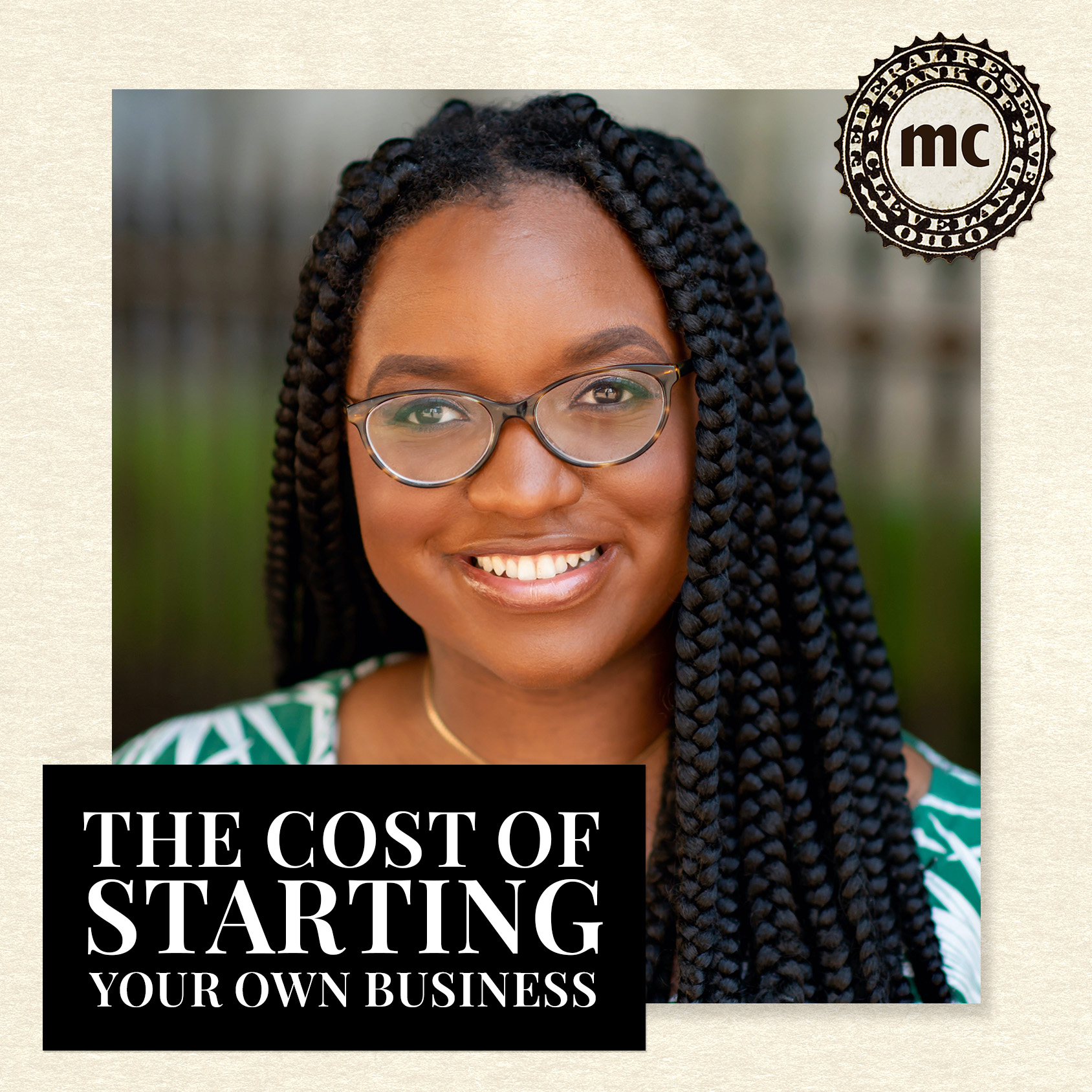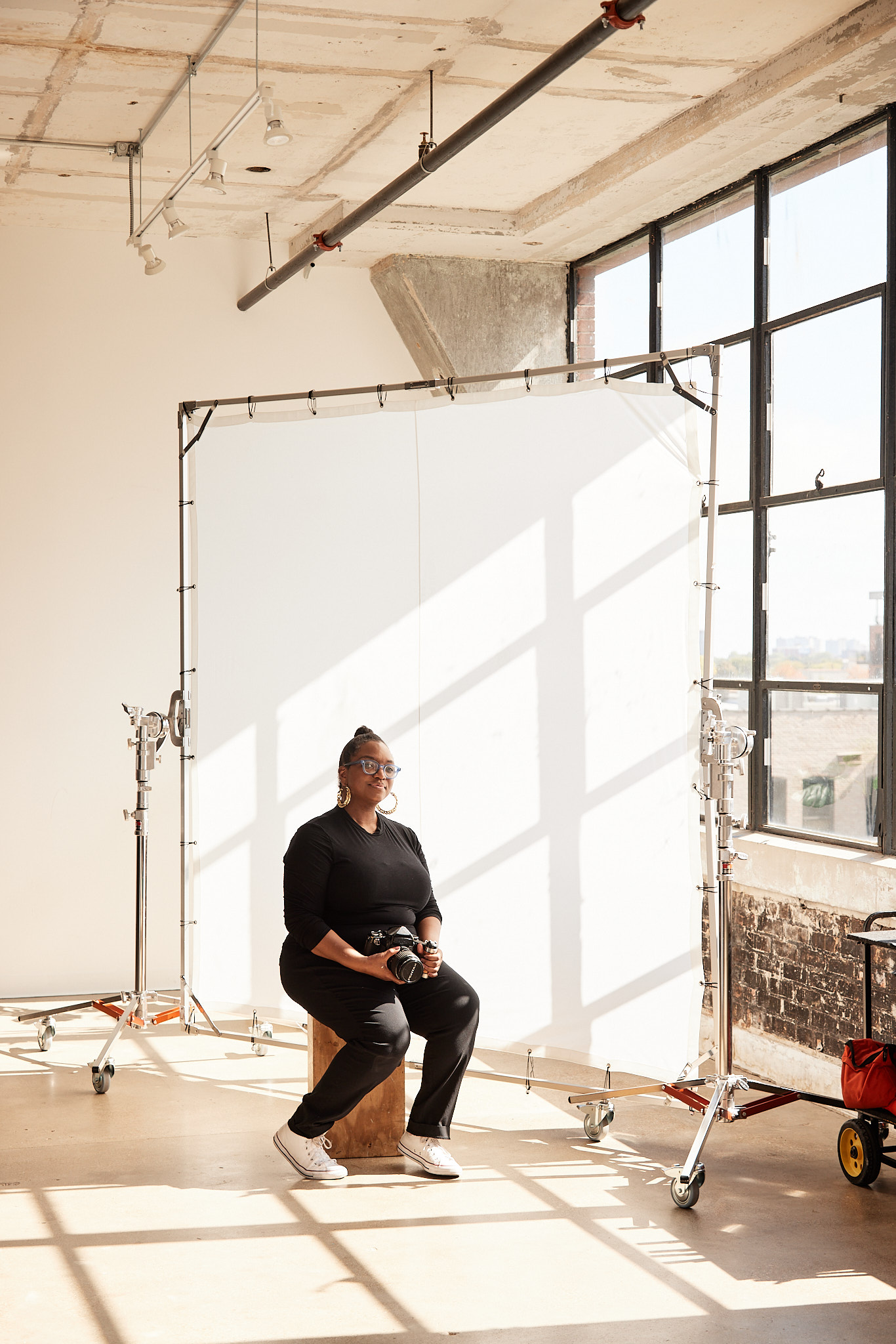
The Cost of Starting Your Own Business talks to founders to get an honest look at what it really takes to create a company. Not just the financial, but the personal and emotional costs, too.
Danielle A. Scruggs didn't expect that Ava DuVernay's debut film I Will Follow would change her life. But seeing a movie created by, and starring, a Black woman was enough to inspire her to start Black Women Directors—a digital library where she cataloged movies by Black female and nonbinary filmmakers, while advocating for the further hiring of diverse filmmakers.
"I started Black Women Directors because I wanted to learn more for myself," says Scruggs, 40, who primarily works as a photojournalist and photo editor in Chicago. "What I realized as it gained a lot of traction is that this isn’t just something I’m interested in; a lot of other people want this information, too.”
There’s really great work being done by Black women, and they deserve a fair shake at equity.
Information that Scruggs hopes doesn't just educate—but leads to real change. According to a USC Annenberg Inclusion Initiative study only 5.3 percent of 2024’s top-grossing movies were made by women of color. “There’s really great work being done by Black women, and they deserve a fair shake at equity,” Scruggs says. “I hope that Hollywood also sees that they don’t have to hire the same people over and over again. There are so many people to choose from, and you’re not gonna get a monolithic point of view if you hire someone featured in this archive.”

Since its launch in 2015, Black Women Directors has continued to expand its footprint. Scruggs collaborated with Black Film Club Chicago last August to launch the Chicago Film Symposium, which is in the planning stages to return later this year. She’s also begun to pick up more accolades, like two 2025 Webby Awards and an upcoming fellowship with Archiving The Black Web. Filmmakers from Justin Simien to Radha Blank—and even DuVernay herself—have even shown their support for the site.
On a video call in April, we talked with Scruggs about how she transformed her educational Tumblr into an expansive platform, where she sees the future of Black Women Directors going, and the shoutout that shocked her.

Seeing the I Will Follow posters was a moment that stuck with me. In 2015, I realized, I want to have all these things I’m seeing in one place, so let me start a Tumblr like everyone else. It went through a couple different cycles. Eventually, I moved it to Squarespace. I worked with a developer and designer to do a redesign of it two years ago to make it more search-friendly, easier to use, and more aesthetically pleasing.
When I started the site, I would get a lot of messages and emails from people saying, “That’s so great that you featured this person. Make sure you check out this other person.” I looked at a lot of different sources to figure out who to feature, putting my journalism skills to use.

Hosting a site on Squarespace is $196 for the whole year. I decided to start doing it by year, more so for psychological purposes, and not seeing a monthly amount leave my bank account. It’s $40 for the domain name. I used to pay $30 a month for Mailchimp, but I moved to Substack because it’s free, and I felt like I could have a bigger reach. I also paid for movie streaming services like Netflix, Criterion Channel, HBO, and costs related to movie screenings.
I have donations set up, but to be fully transparent, I don’t get a ton of donations. I’m selling a zine and also have an option for people to subscribe to my Substack, but it’s available for free. All donations and proceeds go towards hosting the site, but I don’t have a major funder or sponsor.
Launching the Chicago Film Symposium last year, we were incredibly lucky because we reached out to Sisters in Cinema, and they had grant funding that covered the venue and AV equipment. So between Black Women Directors and Black Film Club, we only paid for catering, an event photographer, and marketing materials. Right now, we’re finding sponsors for the next iteration by reaching out to local and national businesses. Financially, it’s a bit of a challenge because none of us is independently wealthy, and we don’t have a grant sponsor yet.

Black Women Directors is a one-woman labor of love, and the biggest hurdle is time. I don’t work on this full time. My day job photo editing is pretty demanding in and of itself, so being able to make time and making sure I have the emotional capacity after work is a big thing.
I update the site, publish a monthly newsletter on Substack, and sell a zine. It takes me about 10 hours every week. The actual writing of everything takes about two hours, but there are other hours of doing the research, culling through different screening announcements, watching movies, and processing what you’ve seen. Eventually, I would like to hire someone to work with me on adding directors to the site and then featuring guest writers in the newsletter.

Last year, planning the Symposium was really challenging because I was working at The Wall Street Journal. We had our Symposium right before the DNC, which I was covering because it was in Chicago. I’m still honestly not sure how I was able to work on my day job and then work on creating that event at the same time. I never got to the point where I didn’t want to do this anymore, but there were definitely times where I felt like, Did I bite off more than I can chew? I had to remind myself, You're only one person. You also have two other people [via Black Film Club Chicago] you can lean on. You don't have to try to do everything yourself.

For the most part, people have been supportive and excited to see that there's a platform like this, but sometimes people will email me negative things. I got one last month accusing me of reverse racism. The email said, “Why do you have a site that's just about Black women directors? It should be about all women directors or it should just be about all directors.” Someone else wrote to me about the fact that I included trans women. It didn't even occur to me that that would be an issue for someone; it's called Black Women Directors. I'm hoping that because there's been more education around gender identity issues, that's not going to continue to be an issue.

I was featured in The Cut, which was surprising because I didn’t know anyone there knew about me. They had a feature about how to find out about Black women filmmakers, and they listed me along with Maya Cade’s Black Film Archive. I was like, Whoa, that’s pretty cool. I’m in very good company.
When I first started the site, I got a shout-out from the British Film Institute on Twitter. I was like, How did they even know about me? I took a screenshot to remember that people are paying attention to the work.

This is a lot of fun for me. I love doing research. I love doing deep dives. I love watching films and learning more about different filmmakers who are out there. It inspires me as well. Through Black Women Directors, I've connected with a lot of different people locally, nationally, even internationally. It's been a very humbling experience to realize that something that I started purely for my own selfish purposes of wanting to learn more about Black women in film has turned into a bigger platform.







